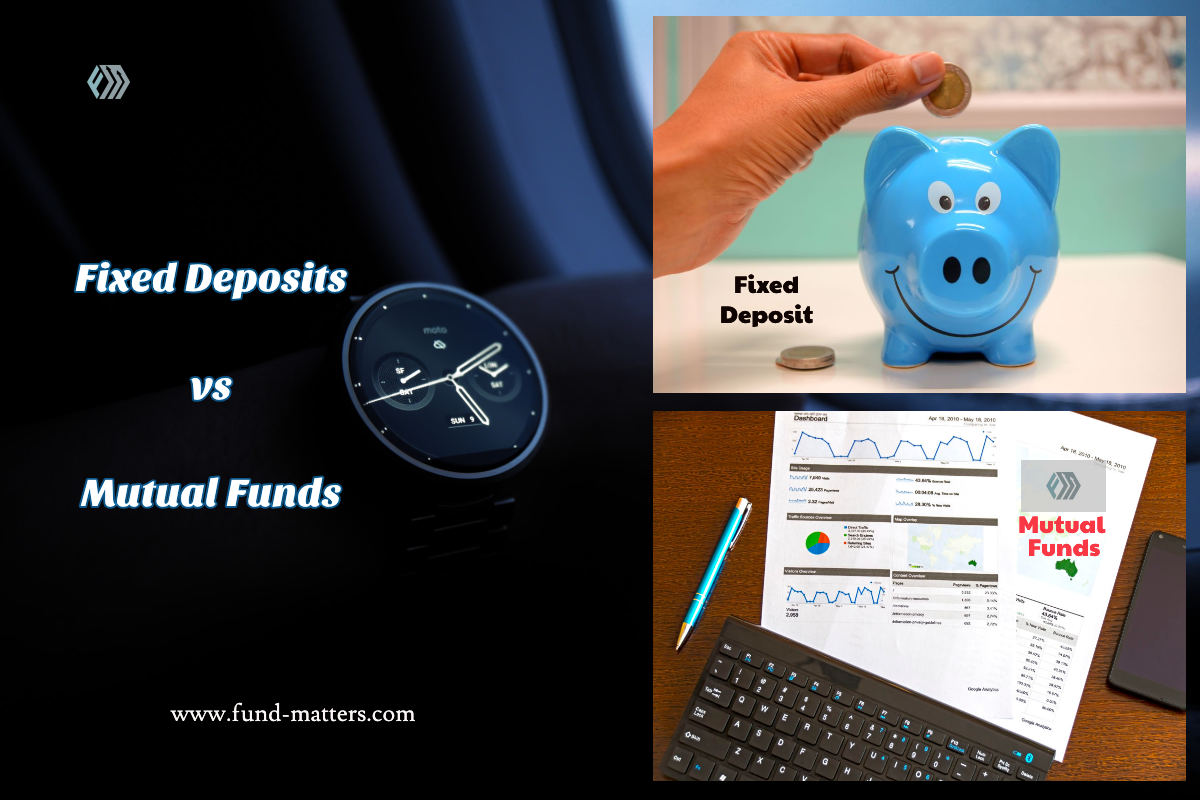Fixed Deposits v/s Mutual Funds


To create wealth, there is no alternative to mutual funds.
However, conservative instruments like fixed deposits act as a hedge during volatile times.
The mutual fund sector marks its 25th anniversary in India this year. And in this 25 years the world has progressed faster than it had moved in the last 2,500 years. But even today, Indians restrain from investing in market-linked product fearing market volatility. This translates into only three per cent exposure in equity related assets in the Indian markets as compared to the global average of 34 per cent. This is despite an average growth of 24 per cent in the last 25 years.
About 15 to 20 years back the story was a little different. Fixed deposits and other fixed assets gave 10 to 12 per returns and the mutual fund sector was not much structured. With globalization and opening up of the global markets, the banking sector has changed much rapidly. With seven per cent interest rate fixed deposits fail to beat inflation, which is 6.4 per cent since 2012. This means you can secure up to Rs 7 by investing Rs 100 but the cost of a product which was earlier charged at Rs 100, now costs more than Rs 107. So even if you remain under the illusion that your money has grown, your purchasing power has gone down. Moreover, if the money is parked for a long-term, it will only keep compounding in terms of numbers but not in terms of purchasing power.
On the other hand, on a long-term basis, equity-linked mutual funds have a tremendous power to grow your money even after beating the inflation rate. Moreover, they are managed by professionals who do their best jobs trying to mitigate the risk.
“Investing via debt funds is a more contemporary way of investing in the fixed income category which offers a smarter option of flexibility, tax efficiency and diversification. If you invest for over three years you also get the benefit of indexation,” Kalpen Parekh, President, DSP Investment Managers, told Fund Matters.
Also, while choosing between fixed deposits and mutual funds, one should consider the taxation part. In the case of fixed deposits, a tax is charged according to your current tax slab, irrespective of the tenure of the deposit. Compared to that, mutual funds are much more tax-friendly. Though short-term equity funds are taxable at 15 per cent, the same products held for a long-term (more than a year) are not.
If a fixed deposit is liquidated pre-maturely, a certain amount of penalty needs to be paid. On the other hand, mutual funds charge only an exit load in case of a pre-mature disbursal and that too, if it is withdrawn within an year.
If the stock markets are not your ground to play, you can also opt for debt mutual funds. These mutual funds invest in government bonds, certificate of deposits etc. They are not only safe but provide one to two per cent higher interest rates than fixed deposits. However, long-term debt fund gains are taxable at 20 per cent with indexation and short-term capital gains are taxable according to investor’s tax slab, as per Cleartax.
According to Standard and Poor’s Rating Services Global FinLit Survey of 2016 – only 24 per cent of Indian adults are financially literate. This means, even the educated class is finically illiterate as such things are not taught at home, schools or colleges. And, since we have seen the past generations opting for more conservative product, millennials also end up investing in the same instruments.
The role of fixed deposits should not be undermined. They act as a hedge during the market volatility. But, an investor needs to understand both the concepts before building a solid portfolio.
“At any time, a term deposit is always the safest investment with a guaranteed return. In this turbulent phase when the market is uncertain, I believe that mutual funds are not the most ideal investment option. One should always opt for safe investment that assures guaranteed returns even in difficult times,” Sanjay Kao, Chief Business Officer, Ujjivan Small Finance Bank told Fund Matters.
Analysts estimate that 60-70 per cent of the fixed deposits in a bank fall in the one year bracket. However, for wealth creation, it is always suggested to opt for a combination of two. For example, if you have a particular objective in focus in another 20 years, like retirement, children’s higher education or their marriage. Then for the first 15 years, you can invest in mutual funds but for the next five-year term you can park the money in a fixed deposit. It is always better to be safe than sorry. The phrase goes for investment as well.
Happy Investing!



